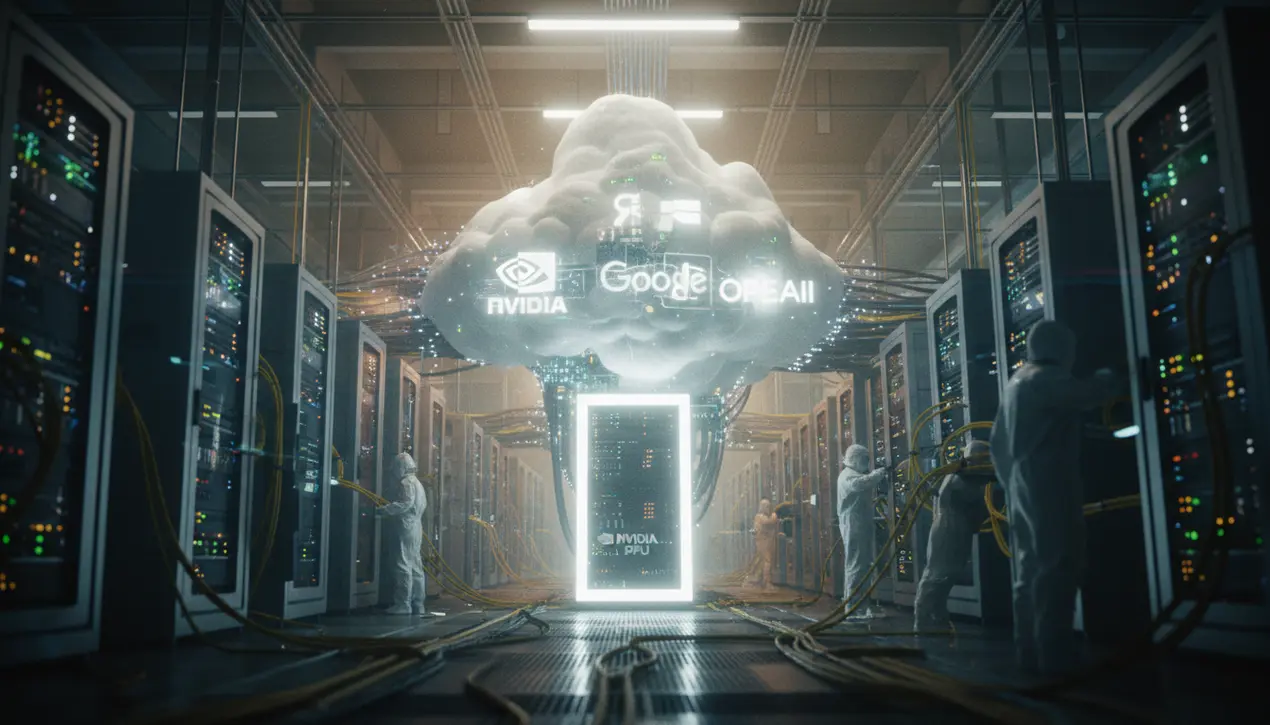
AIchips & hardwareNVIDIA GPUs
There Is Only One AI Company. Welcome to the Blob
MI
Michael Ross
1 day ago7 min read3 comments
The AI industry, once a sprawling ecosystem of scrappy startups and academic labs, is rapidly coalescing into a singular, powerful entity—a Blob, if you will, where the distinctions between Nvidia, OpenAI, Google, and Microsoft are blurring into a web of partnerships and strategic dependencies. This isn't merely a trend; it's a fundamental restructuring of technological power, reminiscent of the early days of the industrial trusts, and it raises profound questions about the future of innovation and control.Nvidia, having achieved a near-monopoly on the computational brains required for advanced AI with its GPUs, now finds its hardware so deeply integrated into the operations of its would-be competitors that it has become the indispensable bedrock of the entire field. Simultaneously, the complex relationship between Microsoft, with its vast cloud infrastructure and capital, and OpenAI, with its research prowess and headline-grabbing models like GPT-4, exemplifies a new kind of corporate symbiosis where the lines between investor, partner, and competitor are intentionally fuzzy.Google, with its DeepMind heritage and Gemini models, is not sitting idly by but is forced to navigate this consolidated landscape, forging its own alliances and making strategic bets to avoid being left behind. This convergence towards a monolithic AI apparatus forces us to confront a series of critical dilemmas straight out of an Asimovian narrative: does this consolidation accelerate progress by pooling resources, or does it dangerously stifle the diverse, decentralized innovation that has historically driven computing forward? The risks are not merely economic but are deeply ethical and societal; when a handful of companies control the core infrastructure and most powerful models, they effectively set the rules for a technology that will reshape everything from employment and healthcare to warfare and art.We must ask who is accountable when these systems fail or cause harm, and whether the current regulatory frameworks, designed for a different era, are equipped to handle a Blob that operates across traditional sectoral boundaries. The promise of AI is immense, offering tools to solve climate change and cure diseases, but this promise is shadowed by the perils of concentrated power—the potential for biased systems to be scaled globally, for surveillance capabilities to be perfected, and for a new technological aristocracy to emerge.The path forward requires a vigorous public and policy debate, one that balances the undeniable benefits of collaboration with the urgent need for oversight, transparency, and the preservation of competitive avenues. The Blob is here; the question now is whether we can shape its growth to serve humanity, or if we will become merely subjects in its domain.
#featured
#Nvidia
#OpenAI
#Google
#Microsoft
#AI industry
#partnerships
#consolidation
#hardware
Stay Informed. Act Smarter.
Get weekly highlights, major headlines, and expert insights — then put your knowledge to work in our live prediction markets.
Comments
Loading comments...
© 2025 Outpoll Service LTD. All rights reserved.